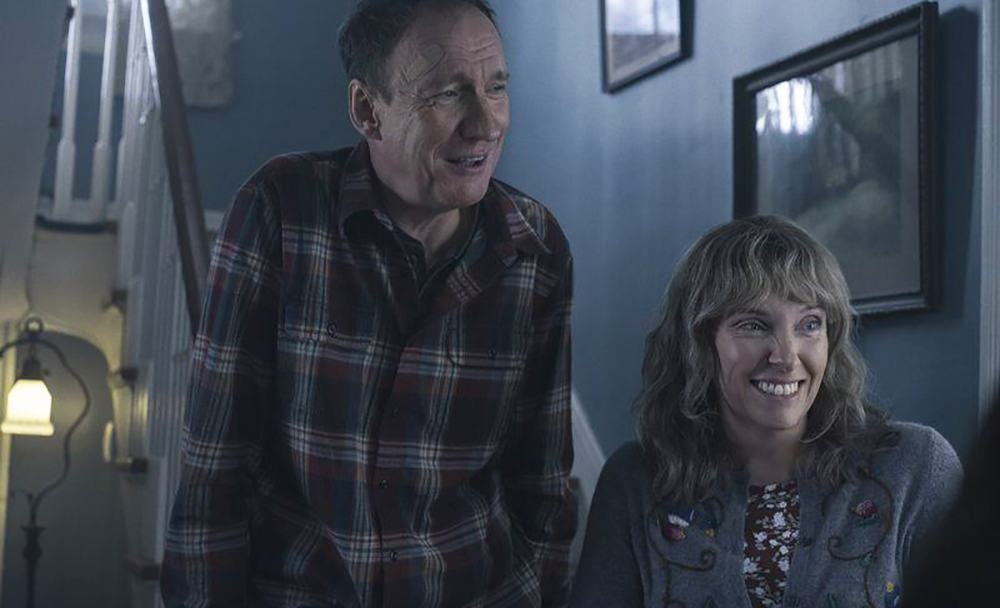From acclaimed writer/director Charlie Kaufman (“Being John Malkovich,” “Adaptation”) comes “I’m Thinking of Ending Things,” a psychological drama starring Jessie Buckley as an unnamed woman who goes to meet her boyfriend’s parents. That barely scratches the surface of what this movie is about, but I’m not going to spoil it because I’m not quite sure if I can.
The film opens with narration from the unnamed woman, where she states the title of the film. This narration continues throughout the movie as we are introduced to this couple in a car. It is immediately apparent that this is not a conventional film, as the two have an extended, mildly awkward conversation.
A typical film would have this scene last approximately two minutes, but this scene accentuates their tension with a conversation that meanders from topic to topic without much of a direction, resembling how many real conversations go. However, this scene lasts for over 15 minutes, and their relationship appears to be rocky.
Long sequences such as this continue throughout the film with many uncomfortable moments of dead air. The film’s first hour has conversations where characters stammer and stumble over their words, leading to very organic dialogue with many painful moments.
While this is a psychological film, the first shocking moment doesn’t come until the hour mark, and from there, it creates a captivating series of confusing events. The film moves to unique, unpredictable places as it goes on, and anyone who says they know where the film is going is a liar.
If I gave you a million years to figure out what happens during the final act, you would never guess. You may be able to guess the twist, but you could never predict the way Kaufman executes this eccentric ending that may leave you feeling confused, bewildered, and saying to yourself, “um…what?”

There are moments of foreshadowing in retrospect, and it is a surprise, but the ending feels unsatisfying as it doesn’t answer the questions that it didn’t need to ask. For example, the young woman continuously receives calls on her phone from a friend, but we never understand why she is receiving these calls.
When she picks up a call, she hears a strange voice reciting a few obscure sentences, which is never referenced again. The young woman goes to an ice cream shop and meets a female employee with rashes on her arms, and she feels as if she knows this employee. Once again, this is never resolved.
Kaufman wants to challenge his audience with this film, leaving the viewer to piece together much of the story’s intricacies on their own. While I commend a filmmaker’s efforts to force the audience to think further about a film, Kaufman gives us very little to work with, barely giving any hints to what he is aiming for.
It’s a needlessly abstract ending that evokes nothing from the viewer besides shock and confusion. While it’s an undeniably unique film from start to finish, an outlandish final act that fails to communicate its story holds it back.
Much of the film is indeed excellent. The cinematography is exquisite, capturing snow in an aesthetically pleasing way, and much of the film is filled with intrigue and mystery. Unfortunately, the final act does not pay off most of the promising setup.


